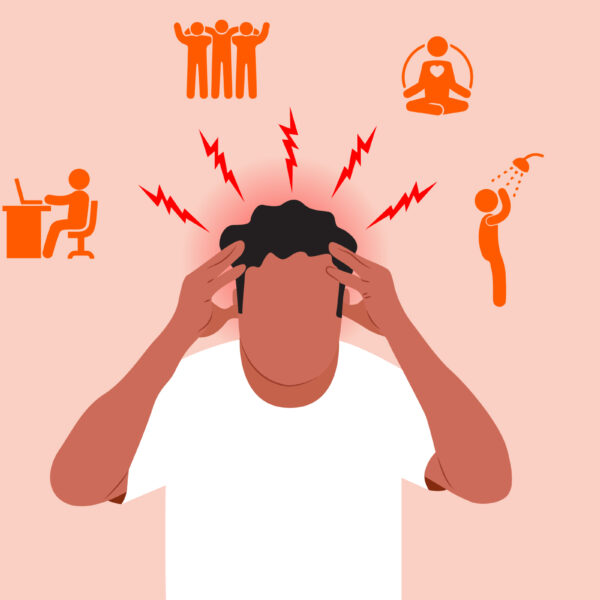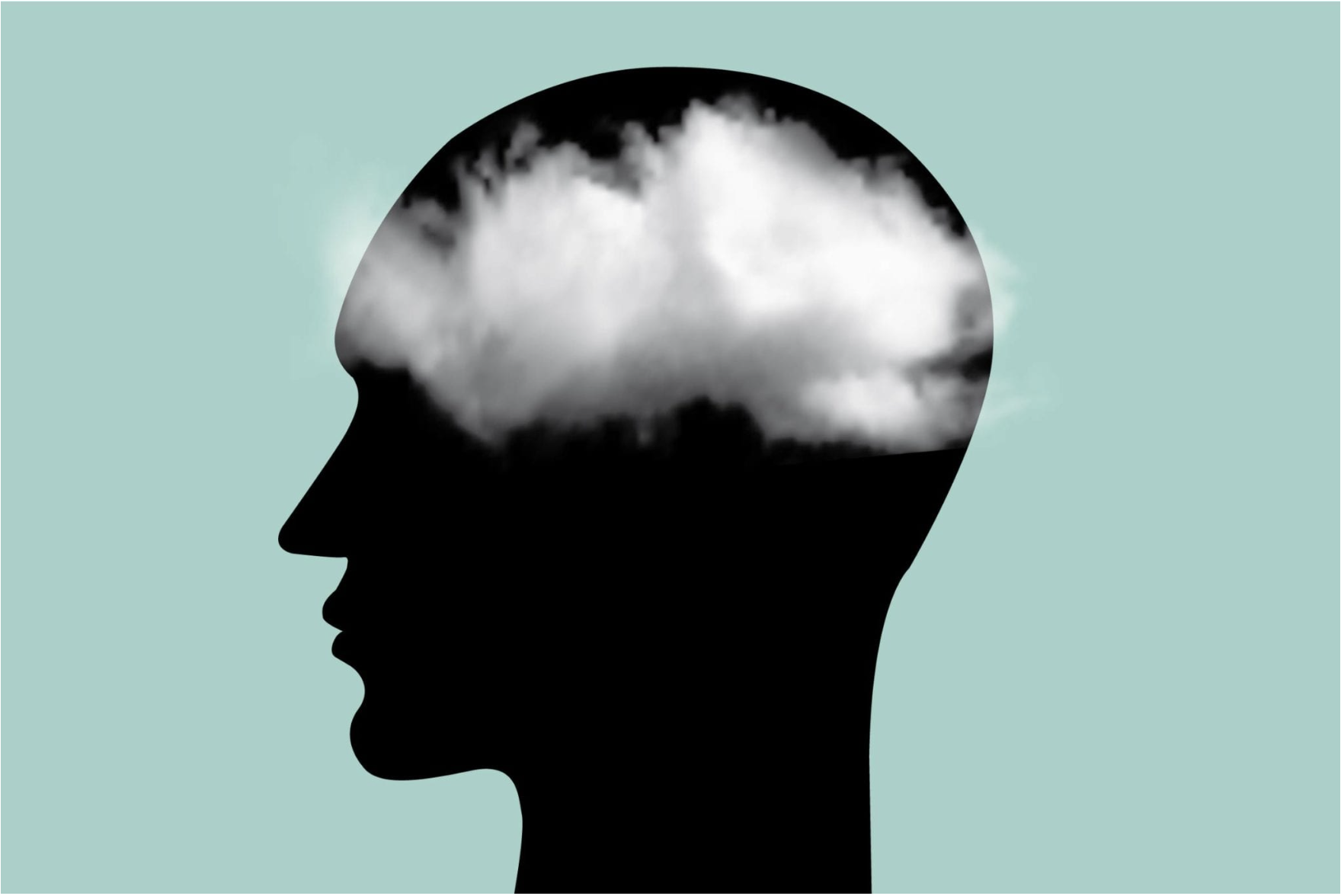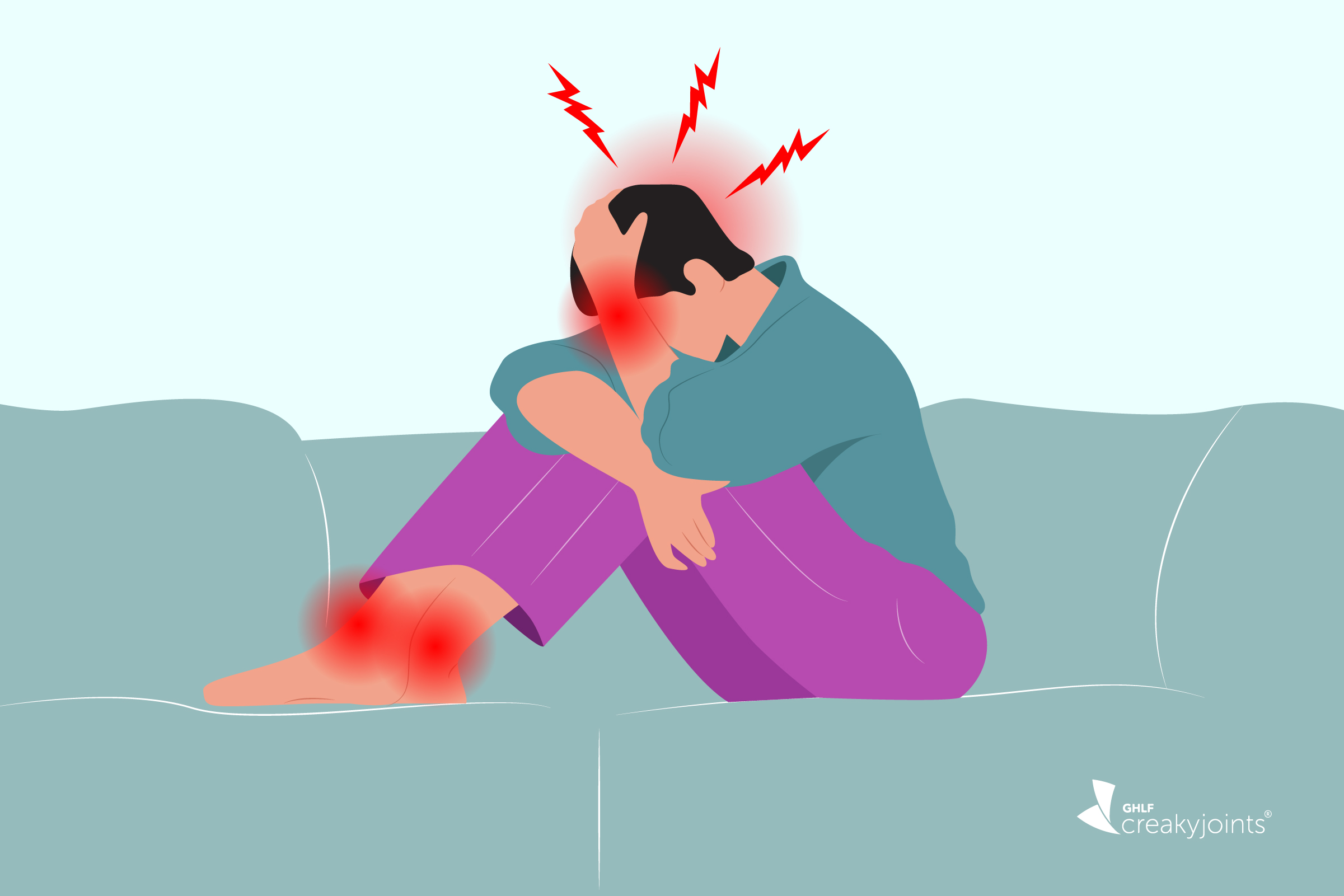Discover the symptoms of brain fog linked to migraine and learn coping strategies to manage cognitive challenges.
What Is Chronic Migraine — and How Will it Impact My Daily Life?
What Is Chronic Migraine — and How Will it Impact My Daily Life?
Experts and patient advocates discuss the impact of chronic migraine on your career, social life, emotional health, and more.
October 31, 2022
Karyn Repinski

It’s hard to imagine living half your life with the debilitating symptoms of migraine like intense head pain, nausea, vomiting, sensory sensitivity, and dizziness. But that’s what it’s like for the nearly 150 million people worldwide who live with chronic migraine.
Though many people think of migraine as just a bad headache, it’s so much more than that. A neurological disease that affects your physical and mental health, chronic migraine is defined as having headaches on at least 15 days per month, with eight of them having migraine symptoms, for at least three months.
“MIgraine attacks can last from hours to days and progress through several phases,” says Dawn Buse, PhD, Clinical Professor of Neurology at Albert Einstein College of Medicine in New York City. “There are also symptoms that last between attacks.” Whether or not you already experience vertigo, another common symptom, the constantly recurring episodes can cause your life to spin out of control.
Living with An Invisible Illness
People with chronic migraine may not seem obviously sick, except to loved ones who know them very well. That’s why chronic migraine is known as an invisible illness: A lot of people don’t realize how much pain you’re in because you look healthy on the outside.
“Invisible disabilities can be extremely isolating, especially when it feels like folks don’t understand what you go through on a daily basis,” says CarmenRose Fiallo, 24, who developed chronic migraine after sustaining two serious concussions and experiences a migraine attack every single day. She now serves as a migraine patient advocate, helping to raise awareness about living with migraine.
In most cases, chronic migraine completely changes how you navigate the world and what you can do. “Chronic migraine penetrates many aspects of people’s lives, from family to social to work spheres,” says neurologist Noah Rosen, MD, Director of Northwell Headache Center in Great Neck, New York.
And, of course, the more days per month that you lose to migraine, the greater the impact it has on your life and your ability to be a good spouse, parent, employee, and friend. “In our research, the impact on work, school, and social life is significant for people who live four or more monthly days with migraine,” says Dr. Buse. “And that negative impact increases as the number of days that someone has migraine every month increases.”
The Impact of Chronic Migraine
Chronic migraine has been found to have a tremendous impact on day-to-day life, causing significant strain on your relationships, career, finances, and emotional health.
Your Career
With 113 million workdays lost due to migraine each year in the U.S., it’s not surprising that chronic migraine can have a devastating effect on your ability to succeed and advance in your career. A 2019 study found that people with chronic migraine were significantly more likely than those with episodic migraine to experience negative effects on their careers, including missing out on promotions or raises. They were more likely to call in sick due to their condition and reported that their career advancement had been limited.
Michelle Tracy had to give up her position as an elementary school teacher when her daily migraine attacks made it too difficult to work. “Being a preschool teacher was my everything,” says Tracy, 37, an advocate for people with migraine and headache disorders who had her first migraine attack at age 19. “Losing that job was devastating.”
Even though medication has reduced her migraines to a few a month, she worries about returning to work. “What if the medicine stops working and the migraines come back again?” she wonders. “Even though it’s been four years now, I live in that constant fear of, when is the other shoe going to drop?”
Chronic migraine is often disabling and can keep people from maintaining a full-time job. Fiallo is only able to work about 10 hours a week in her role as a consultant for nonprofit organizations, and even that’s pushing it. She expects that she will need to work remotely for the rest of her life. “Even if my condition gets better, there are so many triggers at a traditional workplace — fluorescent lights, loud sounds, loud scents, lack of access to a dark room when needed.”
It can also be a challenge to travel, particularly if you’re actively having a migraine or an aura, notes Dr. Rosen. “Environmental concerns like airflow, light exposure, and the ability to appropriately hydrate can make a major difference,” he says.
“It’s hard to be healthy in an unhealthy environment.” The physical pain of chronic migraine also frequently causes financial pain. In a recent study designed to learn the full impact of migraine through patient voices, one patient reported having to pass up a job that paid about $15,000 more a year because it required travel.
Your Ability to Think and Concentrate
People with chronic migraine often experience cognitive symptoms, which makes it difficult to think, reason, and remember. This brain fog can take a huge toll on productivity and your ability to just get things done.
Often, these symptoms presage a migraine attack (what’s known as the prodrome stage); they can also be part of the post-dome, or final stage of the attack. “It’s difficult to bounce back after an attack,” says another participant in the Headache study. “It’s like having a hangover.”
Many people try to push through on migraine days, but the effort can backfire. “The days that I would push myself to go to work, it was hard to think and concentrate, and sometimes I just sounded like a blooming idiot, because I could not communicate,” recalls one participant in the aforementioned Headache study. “I could not think of words, I would forget things. It was very, very difficult.”
Your Personal Life
The unpredictable nature of chronic migraine makes it very difficult for people to have a normal social life. Social gatherings can be a minefield for someone with migraine: There are so many individual migraine triggers that it can be difficult to avoid them all. Canceling plans, often at the last minute, is common and frustrating, which is why people often just avoid making plans at all.
“From little things like being able to attend your child’s soccer game to big things like weddings and vacations, you miss out on life a lot with chronic migraine,” says Dr. Buse.
Before chronic migraine, Fiallo enjoyed adventuring and was pretty active. “I can’t do what I used to be able to do, so I have to learn my new capabilities,” she says. “Chronic migraine has forced me to rethink every aspect of my life.”
Her new reality, which often includes sitting in a dark room, is a 180 degrees from her previous life. “The lifestyle I need to mitigate migraine is not the ‘typical’ lifestyle of folks my age,” says the 25 year old. “I can’t be out of the house for too long without getting exhausted and I have to plan breaks into my activities.”
When your migraine attacks last for days, it hinders your ability to spend time with friends and family, which can put a strain on relationships. Two of Tracy’s best friends “broke up” with her because they said she became too unreliable. “It’s a story you hear over and over again — with friends, partners, coworkers — with migraine,” she says.
Though many people show extreme compassion for their loved ones with chronic migraine, not everyone is so empathetic. “It’s hard for people — they want to go out and live their life, and don’t want to deal with someone pulling them back,” says another participant in the Headache study.
Your Emotional Health
When asked about the impact chronic migraine has on emotional health, Dr. Buse ticks off a range of emotions, including coming down hard on yourself, known as self-stigma. “That’s very common among people living with chronic migraine, even though migraine is a biologic disease with a genetic predisposition that has to do with neurochemicals in your brain,” she says.
Beyond that, “it’s exhausting and overwhelming, and it takes over everything in its unpredictability. It’s painful and relentless, and has the potential to disable every aspect of your life.”
Not surprisingly, it can lead to the feeling of hopelessness, and then often leads to depression and anxiety, which often go hand in hand with chronic migraine. According to Dr. Buse, about 20 percent of people with episodic migraine may also have depression, and that number increases as the number of headache attack days per month increases. Between 30 percent and 50 percent of people with chronic migraine also have anxiety, which often stems from a fear of the unknown: When will the next attack strike and what will it impact — school, work, a vacation, or special event?
“My depression was definitely intense,” says Tracy, who sought help from a therapist. “I am incredibly grateful that I didn’t grapple with suicide attempts or suicidal ideation, which a lot of people in our community do.” As another participant in the Headache study reported, “I felt hopeless about it, not to the point of being suicidal, just how can I keep going if this is how I feel?”
Your Personal Identity
“Living with chronic migraine and intractable migraine, you really lose yourself within the disease, because you’re dealing with it nonstop 24/7,” says migraine advocate Jamie Sanders, who’s struggled with migraine for nearly 30 years.
It’s not unusual for people to say that the disease can make it hard to remember who you are or what you liked to do — or even a time before you had chronic migraine. “It’s hard for me to separate myself from chronic migraine,” says Fiallo. “I feel like it’s all I talk and think about.”
Losing your sense of self can be the scariest part of chronic migraine. “Living with chronic migraine and intractable migraine, you really lose yourself within the disease, because you’re dealing with it nonstop 24/7,” says migraine advocate Jamie Sanders, who’s struggled with migraine for nearly 30 years.
To keep the disease from dominating her identity, Sanders calls herself “Migraine Diva” and writes a blog with the same name. The idea isn’t to glamorize migraine, but to hold on to her identity as someone who loves creative outlets like makeup and hair. “I started to pull back from identifying with my disease and personifying my symptoms, and really learning to recognize that I’m still the same girl I was back in 1993 with the same passions and love for creative things.”
Hear From More Experts and Patients Living with Migraine
Talking Head Pain is a podcast that confronts head pain, head on. Brought to you by the Global Healthy Living Foundation and hosted by migraine advocate Joe Coe, this show explores how people living with migraine, cluster headache, and other types of intense pain find ways to better manage their disease. Listen here.
Sources:
Interview with Dawn Buse, PhD, a licensed psychologist and clinical professor of neurology at Albert Einstein College of Medicine in New York City
Buse, D, et al. “Life With Migraine: Effects on Relationships, Career, and Finances From the Chronic Migraine Epidemiology and Outcomes (CaMEO) Study.” Headache: The Journal of Head and Face Pain. September 2019. doi: https://doi.org/10.1111/head.13613.
Estave, P, et al. “Learning the Full Impact of Migraine through Patient Voices: A Qualitative Study.” Headache: The Journal of Head and Face Pain. July 2021. doi: https://doi.org/10.1111/head.14151.
SUBSCRIBE TO GHLF
RELATED POST AND PAGES
_
Was this article helpful?
YesNo




